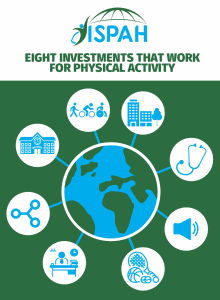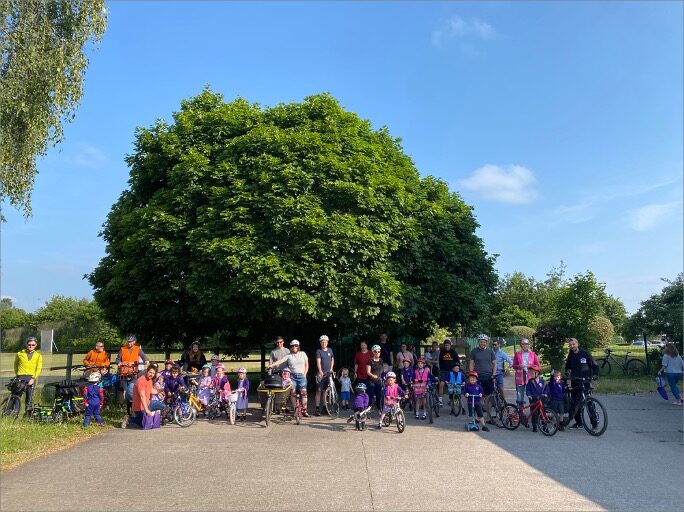National action in the UK to raise the visibility and quality of physical activity teaching for healthcare professionals
The World Health Organization (WHO) Global Action Plan on Physical Activity 2018 – 2030 (GAPPA) highlights the importance of the health sector in tackling inactivity globally. GAPPA actions have guided work done in the UK around physical activity and the health sector.
The Office for Health Improvement and Disparities (OHID) in the UK government is committed to addressing the lack of adequate, high quality and standardised education on physical activity for trainee healthcare professionals. Moving Healthcare Professionals Programme is a national programme, led by the OHID and Sport England to support healthcare professionals to increase their knowledge and skills, and incorporate physical activity within routine care to support quality improvement and better patient outcomes. The Moving Healthcare Professional Programme Undergraduate Workstream provides one of the mechanisms through which this will be achieved.
A series of actions have been led by the OHID, engaging experts from both healthcare and academia across the UK. As Healthcare is one of ISPAH’s #8investments it is important to chart progress on this topic in the UK, and to share experiences to help inform action in other countries.

The OHID hosted an online workshop on this topic in May 2021 with over 60 stakeholders representing a range of healthcare professionals, strategic leaders and educators. This workshop showcased a range of case studies showing how physical activity has been integrated into both undergraduate and postgraduate curricula across the four nations. Through the use of breakout rooms and facilitated discussion, attendees identified a number of themes and actions to take forward. Subsequently, a taskforce was established, representing key experts from the workshop, to prioritise and drive forward implementation of these actions, which include:
- Increasing understanding of the structure, content, and delivery of education across different healthcare professional groups.
- Developing a standardised set of learning outcomes for physical activity for all trainee healthcare professionals, through a consensus process.
- Undertaking an audit of the current professional standards across a range of healthcare professional groups, including medicine, nursing, and allied health.
- Developing a communication strategy and social movement that includes raising awareness of the importance of physical activity among stakeholders in the UK, including practicing healthcare professionals, the bodies responsible for setting the educational curriculum for health-related courses, and the bodies responsible for assessment and accreditation. In addition, students themselves can have a powerful influence on change, particularly through the formation of medical societies and ‘think tanks’.
A number of learnings have already been identified since the May 2021 workshop. These learnings have implications for governments and other stakeholders in any country hoping to move physical activity up the priority list in healthcare professional education.
If physical activity is to be embedded in teaching across a range of healthcare curricula, it needs to be standardised but also flexible. It must fit with existing course structures and delivery formats.
The OHID, in particular through the Moving Healthcare Professional Programme, has a crucial role in providing a ‘voice’ and strategic leadership for physical activity within healthcare and education. They can provide leadership to influence and advance implementation of a coherent and comprehensive curriculum for trainee healthcare professionals, as well as the development of standardised protocols for the delivery of physical activity promotion in routine healthcare practice nationally.
Whilst GAPPA highlights the need to integrate physical activity into the curriculum of health-related courses, there is uncertainty around what should be taught, and in what way. The ultimate aim is to maximise knowledge of physical activity and health among the healthcare workforce and increase competency in assessment and counselling to enable them to promote physical activity to their patients and service users as part of routine practice. National leadership is needed across all countries to address this gap in the training of future healthcare professionals. The experience in the UK is an early example of a national approach that is currently underway. Our approach and on-going learnings may be useful to other countries with the same ultimate goals.
The GAPPA actions related to this work in the UK are:
Action 1.4 – Strengthen pre- and in-service training of healthcare and other professionals and increasing knowledge and skills related to physical activity promotion.
Action 3.2 – Implement and strengthen systems of patient assessment and counselling on increasing physical activity and reducing sedentary behaviour.

Action 4.1 – Strengthen policy frameworks, leadership and governance systems, at the national and subnational levels, to support implementation of actions aimed at increasing physical activity and reducing sedentary behaviours.
Take home messages:
- It is critical that healthcare professionals have knowledge on physical activity and are equipped to assess and promote physical activity to their patients.
- National governments have an important role to play in influencing the education of trainee healthcare professionals.
- The UK government is leading a programme of work to advance this agenda, and the learnings may be useful to other countries globally.
The OHID and Sport England will continue to share experiences, progress, and key learnings at the following weblink Moving Healthcare Professionals | Sport England.
This blog was first published on 16/11/21. This blog was subsequently updated on 24/11/21 to update the weblink.
Authors
Ms. Ruth Shaw, The Office for Health Improvement and Disparities, Department of Health and Social Care, UK Government
Dr. Karen Milton, Norwich Medical School, University of East Anglia, UK




